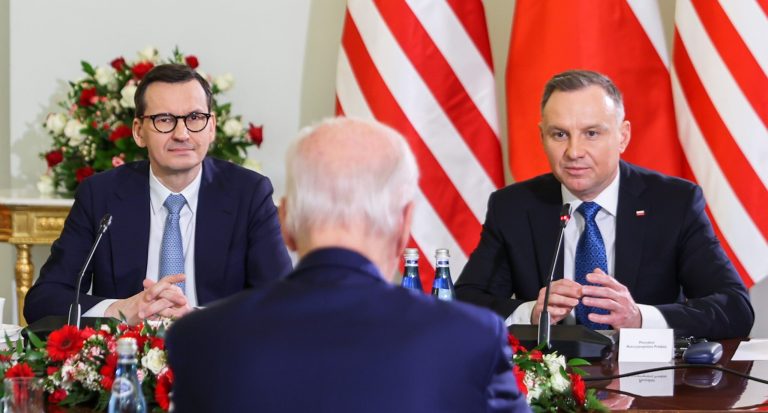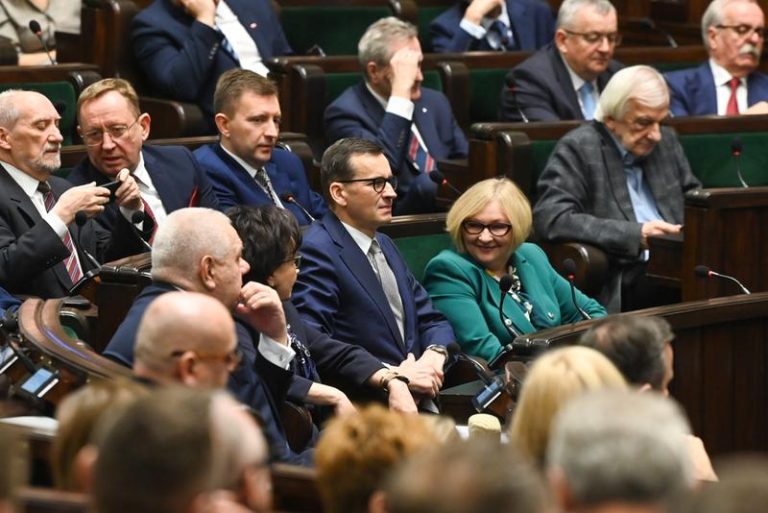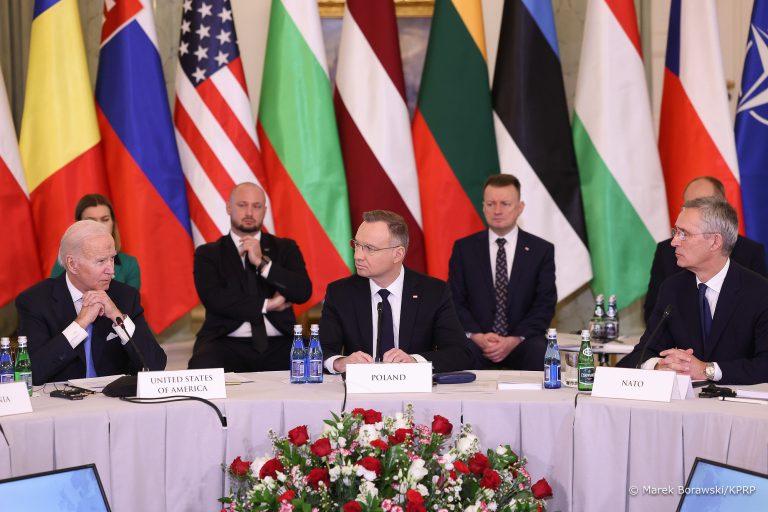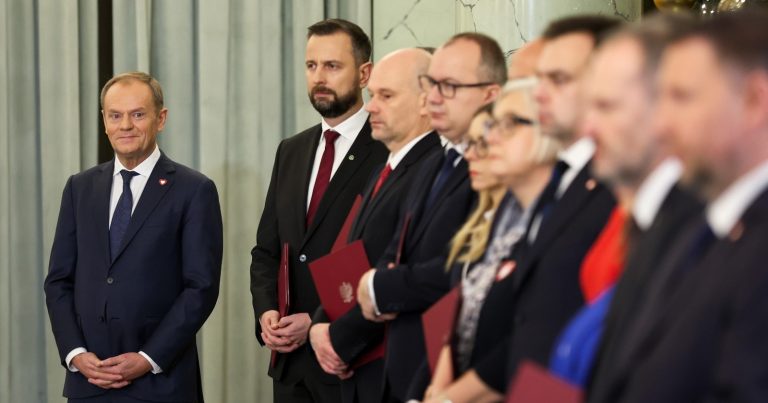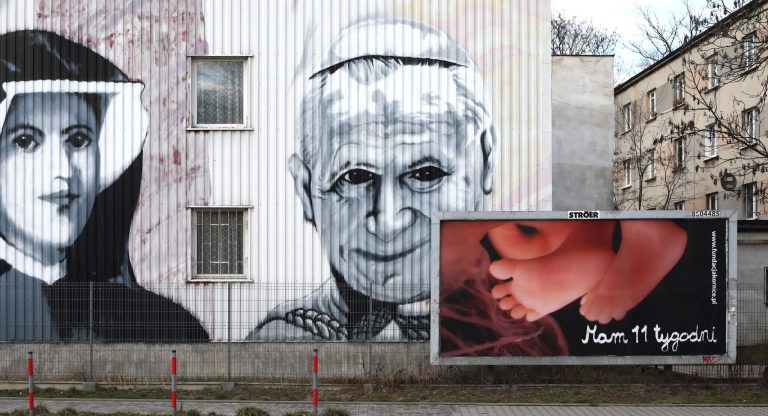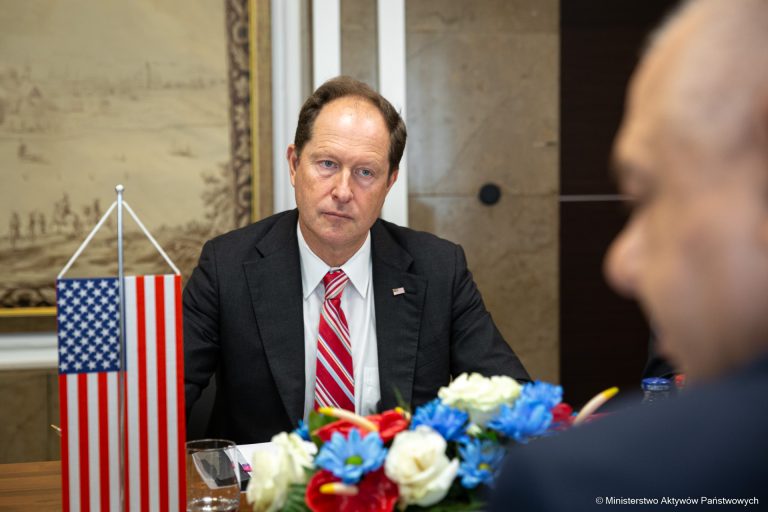President Duda announces new pardon proceedings for convicted former ministers
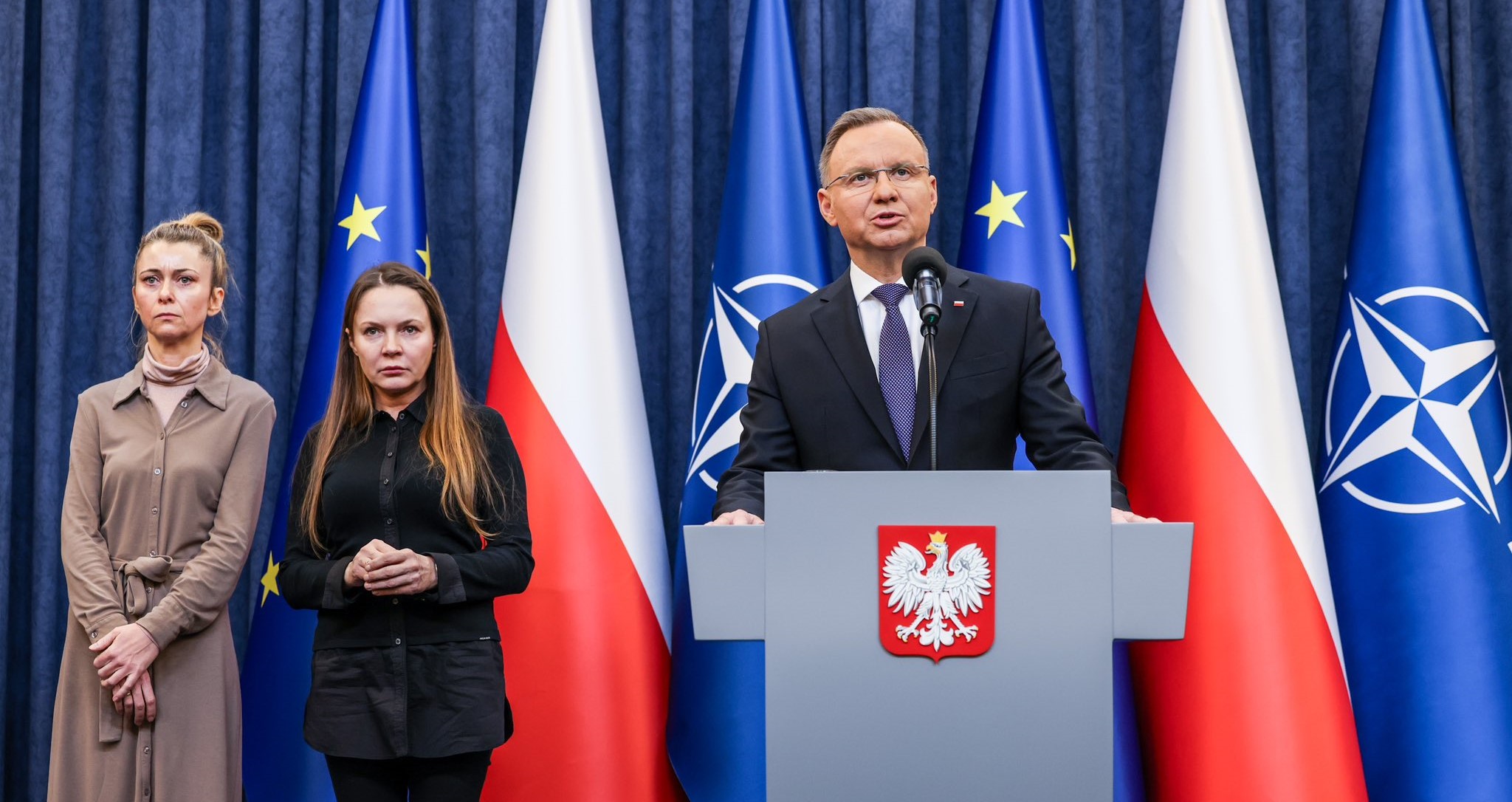
President Andrzej Duda has announced that he will begin new pardon proceedings for the two former government ministers – Mariusz Kamiński and Maciej Wąsik – who were jailed this week following a conviction for abuse of power.
The president’s announcement appears to contradict repeated statements by his office in recent weeks saying that Duda would not issue a pardon because he believes that he already pardoned the two men in 2015. However, last year the Supreme Court rejected that previous pardon as invalid.
Prezydent @AndrzejDuda o wszczęciu postępowania ułaskawieniowego wobec Mariusza Kamińskiego i Macieja Wąsika na prośbę żon – Barbary Kamińskiej i Romualdy Wąsik ⬇️ pic.twitter.com/rCP0X4Vd3W
— Kancelaria Prezydenta (@prezydentpl) January 11, 2024
This afternoon, Duda met with the wives of Kamiński and Wąsik, who were detained by police on Tuesday inside the presidential palace, where they had taken shelter after a court ordered their arrest.
“Barbara Kamińska and Romualda Wąsik came to talk about the situation of their husbands,” said the president after the meeting. “The ladies came to ask if I could bring about the release of their husbands as soon as possible, especially since both of them are refusing to eat.”
Yesterday, both Kamiński and Wąsik announced that they were going on hunger strike in protest of being held as “political prisoners”.
One of the convicted former PiS government ministers detained yesterday at the presidential palace and taken to jail has announced a hunger strike, declaring himself to be a “political prisoner” https://t.co/hey8320QBV
— Notes from Poland 🇵🇱 (@notesfrompoland) January 10, 2024
“At [the wives’] request, I am initiating pardon proceedings,” said Duda, adding that he wanted to “do everything to prevent the escalation of events”. The president noted, however, that he still believes his previous pardon, issued in 2015, “is effective and issued in accordance with the constitution”.
Duda expressed hope that his new pardon proceedings would be considered as quickly as possible by the prosecutor general, Adam Bodnar, who is a member of the new government led by Donald Tusk. He also called for Kamiński and Wąsik to be “released from prison immediately” while the pardon request is considered.
Since Kamiński and Wąsik received binding prison sentences last month, Duda’s two most senior aides – his chief of staff Marcin Mastalerek and the head of his chancellery Grażyna Ignaczak-Bandych – have repeatedly insisted that the president would not issue another pardon to the pair.
“I don’t know where the information is coming from that Andrzej Duda will give in and sign pardons for Maciej Wąsik and Mariusz Kamiński for the second time,” wrote Ignaczak-Bandych last week. “We do not accept this possibility. It’s like signing a contract twice, it’s a denial of your own competencies.”
Nie przyjmujemy takiej możliwości. To jak dwukrotnie złożyć podpis pod umową, jest to zaprzeczanie własnym kompetencjom. 2/3 @Int_Wydarzenia @prezydentpl
— Grażyna Ignaczak-Bandych (@GIBandych) January 3, 2024
Kamiński served as interior minister and minister in charge of the security services in the former PiS government, which was in power until last month. Wąsik was his deputy minister.
In 2015, they were found to have abused their powers during an investigation into a corruption scandal at a time when Kamiński led the Central Anticorruption Bureau (CBA) under a previous PiS government that was in power from 2005 to 2007. Their actions included ordering illegal surveillance and the production of fake documents.
While still appealing those convictions, they were issued with pardons in 2015 by President Duda, who is a PiS ally. He did so one day after Kamiński had been appointed as a minister in a new PiS-led government.
However, last year a chamber of the Supreme Court ruled that those pardons were invalid because they were issued before a final, binding conviction had been issued. That opened the way for Kamiński and Wąsik’s appeals to be heard in December, when the pair were given binding prison sentences.
The Supreme Court has rejected the president’s pardon of a government minister who was in the process of appealing against a conviction for exceeding his powers and a ban on holding public office.
Such a pardon „does not have legal effect”, says the courthttps://t.co/SmbyPC503L
— Notes from Poland 🇵🇱 (@notesfrompoland) June 6, 2023
But another top court, the Constitutional Tribunal (TK), ruled that the Supreme Court has no right to question presidential pardons. Last week, a separate chamber of the Supreme Court effectively recognised the pardons as valid. Both that chamber and the TK are staffed by PiS-appointed judges.
PiS and Duda therefore argue that the pardons remain in force and that therefore December’s convictions should not be enforced. They claim that Tusk and judges friendly towards him are victimising the pair because of Kamiński and Wąsik’s effectiveness in the fight against corruption.
However, after Duda’s announcement today, a host of figures from Tusk’s ruling coalition argued that the president had effectively admitted his previous pardon was invalid.
Deputy prime minister Krzysztof Gawkowski told news website Onet that he was glad the president “realised that he made a wrong decision eight years ago”. He blamed Duda’s stubbornness over the original decision for the current crisis.
Duda musi zjeść własny język!
Posypała się kłamliwa narracja. Żadnego skutecznego ułaskawienia nie było. I nie będzie już więcej ułaskawień bez prawomocnych wyroków. Bo było to czyste bezprawie.
— Michał Szczerba (@MichalSzczerba) January 11, 2024
Notes from Poland is run by a small editorial team and published by an independent, non-profit foundation that is funded through donations from our readers. We cannot do what we do without your support.
Main image credit: Marek Borawski/KPRP

Daniel Tilles is editor-in-chief of Notes from Poland. He has written on Polish affairs for a wide range of publications, including Foreign Policy, POLITICO Europe, EUobserver and Dziennik Gazeta Prawna.

